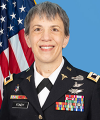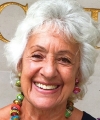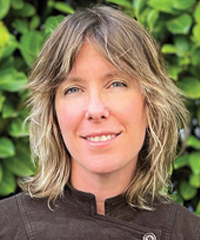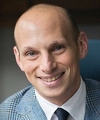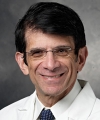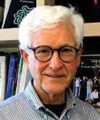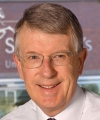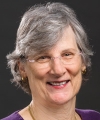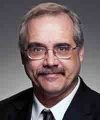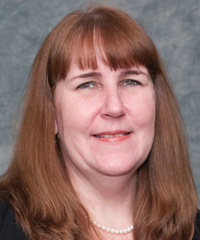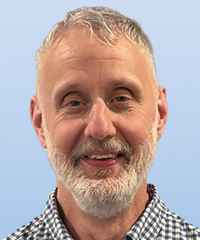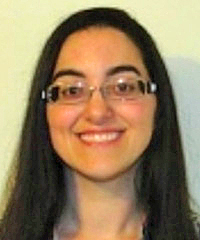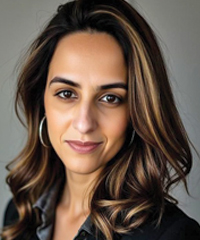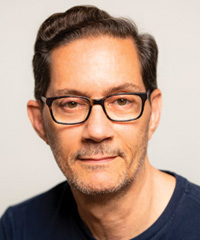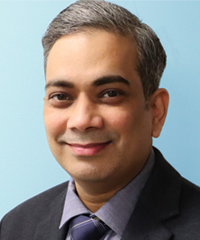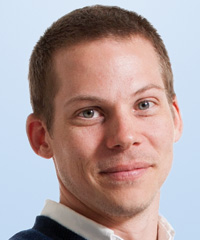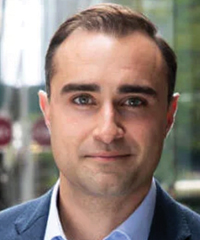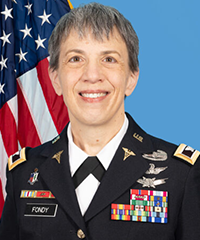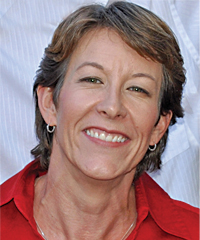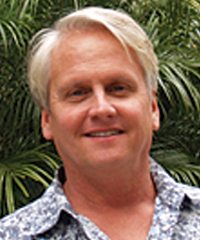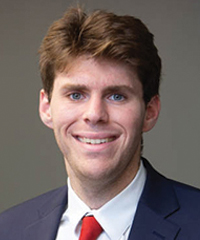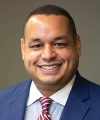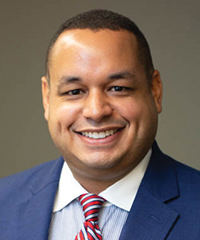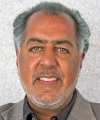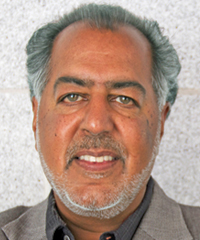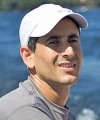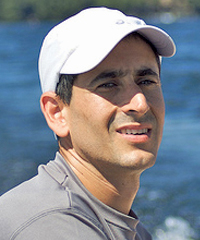Leadership Team
Honorary Board
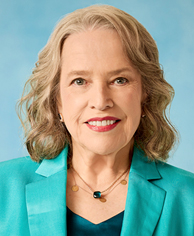
Global Spokesperson
Kathy Bates, Academy Award-winning actress and star of Matlock, developed lymphedema in both arms following a double mastectomy. In 2014, she joined LE&RN as Global Spokesperson to advocate for people living with lymphatic diseases.
Testifying before Congress, Kathy Bates championed the creation of the first-ever National Commission on Lymphatic Disease Research at the National Institutes of Health (NIH). She was honored by Research!America with the Isadore Rosenfeld Award for Impact on Public Opinion, joining fellow recipients former President Joseph Biden and Dr. Anthony Fauci. She also received the WebMD Health Heroes "Game Changer" Award for her advocacy. As a Global Spokesperson, she raises awareness by sharing her journey with cancer-related lymphedema in public service announcements for LE&RN’s National Lymphedema Awareness Campaign, funded by the Centers for Disease Control and Prevention (CDC). She has delivered the welcome message for the annual World Lymphedema Day official video and keynote addresses at major events, including the Gordon Research Conference in Lymphatics, the Lymphedema Symposium at Harvard Medical School, and the American Society of Breast Surgeons Annual Meeting.
Bates continues to use her voice and platform to advance LE&RN’s mission of fighting lymphatic diseases through education, research, and advocacy.
Explore more of Kathy’s advocacy accomplishments and milestones.
 Tone Bell
Tone Bell
Tone Bell is an American stand-up comedian and actor. While co-starring with Kathy Bates on the Netflix comedy Disjointed, Tone learned about LE and began donating a portion of his stand-up royalties to LE&RN.
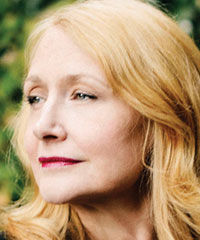 Patricia Clarkson
Patricia Clarkson
Patricia Clarkson has starred in numerous leading and supporting roles in a variety of films, ranging from independent features to major studio productions. Her accolades include a Golden Globe Award and three Primetime Emmy Awards, in addition to nominations for an Academy Award and a Tony Award.
 Andy Cohen
Andy Cohen
Andy Cohen is an American radio and television talk show host, producer, and writer. He is the host and executive producer of The Real Housewives franchise and Bravo's late night talk show, Watch What Happens Live! He also hosts a two-hour show with co-host John Hill twice a week on Sirius XM.
 Pat Crowley
In Memoriam
Pat Crowley
In Memoriam
Pat Crowley, beloved big-screen and television actress, joined the fight against lymphedema and lymphatic diseases at the first-ever Run/Walk in Santa Monica in June 2015. Ms. Crowley developed lymphedema in her leg following cancer treatment.
 Jim Dale
Jim Dale
Jim Dale is an English-American actor, voice artist, and singer-songwriter. He is best known in the United Kingdom for his many appearances in the Carry On series of films and in the US for narrating the Harry Potter audiobook series, for which he received two Grammy Awards, and the ABC series Pushing Daisies. Mr. Dale has also appeared on Broadway (Joe Egg, Me and My Girl, Scapino, and Barnum (Tony Award for best actor in musical)). As a songwriter, he received an Academy-award nomination for Georgy Girl.
 Judi Dench
Judi Dench
Born in England, Dame Judi Dench made her stage debut in Hamlet in 1957. Praised for her theater, film and TV roles, she endeared herself internationally as "M" in the James Bond franchise. She won an Academy Award in 1999 for her role in Shakespeare in Love, and earned six additional nominations for her work in such films as Chocolat, Philomena, and Belfast. Having her portrait taken by photojournalist Gemma Levine who now has lymphedema, Dame Judi offered a testimonial to Ms. Levine's book Let's Talk Lymphoedema, and continues her active support of the cause.
Photo credit: Sarah Dunn
 Diane Gilman
Diane Gilman
Since 1994, fashion designer Diane Gilman has sold her line of jeans, tops, and sandals on Home Shopping Network, with a focus on providing comfortable and casual clothing for women. Her brand is the number one selling brand on the network.
 Steve Guttenberg
Steve Guttenberg
Actor, director, and producer Steve Guttenberg joined the LE&RN Honorary Board in September 2016, making the announcement via a pre-recorded message at Cadman Plaza Park in Brooklyn at the Brooklyn Bridge to 2016 NY Walk to Fight Lymphedema & Lymphatic Disease participants. Mr. Guttenberg's mother suffers from lymphedema.
 Sarah Hughes
Sarah Hughes
Sarah Hughes is an Olympic gold medalist in figure skating and an advocate for lymphedema patients.
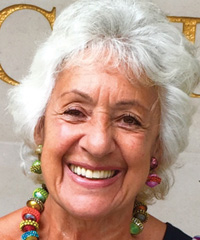 Gemma Levine
Gemma Levine
London-born Gemma Levine’s career as a photographer began in 1975, and since then she has published 20 books of photographs and shown over 60 exhibitions worldwide. She is best known for her striking black and white photographs of major contemporary British people. Her portrait of Princess Diana was chosen by Buckingham Palace as Diana’s official portrait for 1995. Ms. Levine—who has lymphedema in her right arm—has worked solidly to raise awareness for lymphedema research. These efforts include the books Let’s Talk Lympheodema (2017) and Aqua: A Medical Mystery (2020).
 Dame Joanna Lumley
Dame Joanna Lumley
Renowned for her role in Absolutely Fabulous, Joanna Lumley is an actress, broadcaster, author, and activist. She was appointed an Officer of the Order of the British Empire (OBE) in 1995 and elevated to Dame Commander of the Order of the British Empire (DBE) in 2022.
Photo Credit: Gemma Levine, London
 Wendy Williams
Wendy Williams
Wendy Williams is an American television host, businesswoman, media personality, and author. From 2008–2022 she hosted the nationally syndicated television talk show The Wendy Williams Show. Williams has Graves' disease and hyperthyroidism. In 2019, Williams also announced she had been diagnosed with lymphedema in her lower extremities.
Board of Directors
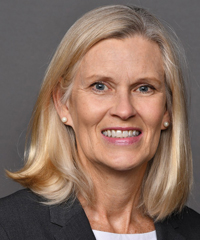 Melissa Aldrich
Chair
Melissa Aldrich
Chair
Melissa B. Aldrich holds degrees from The University of Texas-Austin (BA, Biochemistry), The University of Houston (MBA), and the MD Anderson Cancer Center UTHealth Graduate School of Biomedical Sciences (PhD, Immunology), and is currently an Associate Professor of Molecular Medicine at UTHealth/McGovern Medical School. Since 2008, she has worked with teams comprised of biomedical engineers, biologists, lymphedema therapists, and clinicians to study lymphatic anomalies and lipedema using near-infrared fluorescence lymphatic imaging (NIRF-LI). She has served as PI on NIH- and CPRIT (Texas)-funded longitudinal surveillance studies of cancer-related lymphedema development and lymphatic microsurgeries, and is currently a multi-PI on an NIH-funded study of immediate lymphatic reconstruction in inflammatory breast cancer. Melissa has published findings that imaging and plasma inflammatory markers can detect lymphedema development months to years before clinically evident limb swelling appears.

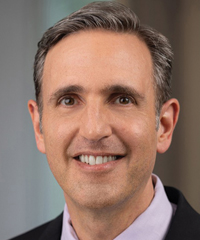 Doron Illan
Secretary
Doron Illan
Secretary
Doron Ilan, MD is an Orthopaedic Surgeon specializing in disorders of the Hand and Upper Extremity. He is the co-director of Montefiore Einstein Orthopedic Surgery, Hudson Valley, NY. He practices in Westchester and Rockland County, New York. Dr. Ilan is a fellow/member of the American Academy of Orthopaedic Surgeons and the American Society for Surgery of the Hand. He has been elected to the Alpha Omega Alpha and Phi Beta Kappa honor societies and is a former contributing editor of the “Year Book of Hand Surgery." Dr Ilan is an avid endurance athlete Dr. Ilan has a family member with Lymphatic disease.
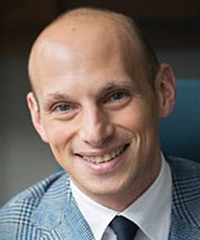 Joseph Dayan
Director
Joseph Dayan
Director
Specializing in reconstructive microsurgery, Dr. Dayan is fellowship-trained in breast and head & neck cancer reconstruction, facial reanimation, and surgical treatment for lymphedema. Dr. Dayan is also an expert in all aspects of plastic surgery including sophisticated reconstructive surgery and the full range of cosmetic operations. Dr. Dayan completed his residency in plastic surgery at Georgetown University Hospital where he trained under leaders in the field of both implant and microsurgical breast reconstruction. He completed his fellowship in microsurgery at Chang Gung Memorial Hospital in Taiwan, recognized as the premier center for reconstructive microsurgery in the world. Dr. Dayan’s research interests are focused on lymph node transfer in the treatment of lymphedema, microsurgical and oncoplastic breast reconstruction, and facial reanimation for facial paralysis. He is collaborating with numerous physicians and scientists across disciplines on novel and important clinical research dedicated to substantially improving patient care and quality of life.
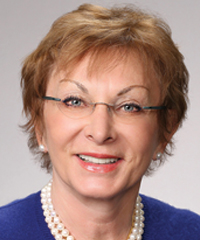 Emily Iker
Director
Emily Iker
Director
Dr. Emily Iker, is a director of the Lymphedema Center in Santa Monica for nearly three decades since MLD certification, from Prof. Albert Leduc, the world-renowned lymphologist. She is the leader in the diagnosis, treatment, and management of lymphedema not only on a scientific level but understands lymphedema on a personal level. She developed secondary lymphedema during her surgical residency which was the turning point leading her into PM&R at New York Medical College. She is a lymphology researcher, lecturer, teacher, and mentor. She is a co-author of “Lymphedema and Lipedema nutrition guide”, Standard Care for Lipedema in the USA, and an author of a recent study on Ultrasonography in lymphedema and lipedema. She is a member of numerous Lymphological Societies and a Vice Chair of the California Chapter for LE&RN.
 Rick Petty
Director
Rick Petty
Director
Rick Petty is Chief Investment Officer responsible for the investment oversight of the Stavros Niarchos Foundation. Prior to his involvement with the Niarchos Foundation, Mr. Petty was employed in the asset management division of Deutsche Bank where he assisted institutional clients with investment strategy and product development. Mr. Petty was engaged with Bankers Trust until the merger with Deutsche Bank. During his period of employment with Bankers Trust, Mr. Petty served in a number of capacities, including establishing the named fiduciary business and the investment consulting business. Mr. Petty also contributed to the development of the risk measurement product offered to external clients based upon the BT’s proprietary Value-At-Risk methodology. Before joining Bankers Trust, Mr. Petty was employed by Chase Manhattan Bank, where he served as an investment consultant and trust officer for large institutional clients. Mr. Petty also serves on the board of the Ball Brothers Foundation and the finance committees of Western Washington University and The Harvey School. He earned a BA in Economics from Western Washington University.
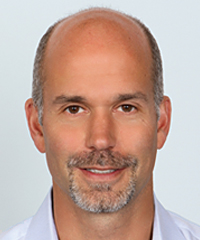 Jonathan Ross
Director
Jonathan Ross
Director
Jonathan Ross holds a B.S. in Marketing from Lehigh University and currently serves as President of Bio Compression Systems, a leading manufacturer of Pneumatic Compression Device based in Moonachie, New Jersey. Jonathan has more than 30 years of experience in operations associated with manufacturing companies, spending 5 of those years living in Hong Kong. He has held his position at Bio Compression since 2013 and was awarded the 2015 LE&RN Impact Award for his passion to bring a better quality of life to the lymphatic disease community.
Scientific & Medical Advisory Council
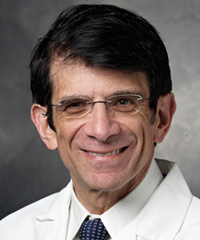 Stanley Rockson
Co-Founder
Stanley Rockson
Co-Founder
Dr. Rockson is the Allan and Tina Neill Professor of Lymphatic Research and Medicine at Stanford University School of Medicine. After earning his medical degree from Duke University School of Medicine in Durham, North Carolina, Dr Rockson completed his internship and residency training in internal medicine at the Peter Bent Brigham Hospital of Harvard Medical School, in Boston, Massachusetts, and fellowship training in the cardiac unit of Massachusetts General Hospital, Harvard Medical School. He is a fellow of the American College of Cardiology, American College of Angiology, and American College of Physicians, as well as a member of the International Society of Lymphology, American Society of Internal Medicine, the Society of Vascular Medicine and Biology, and the Paul Dudley White Society, among others.
 Melissa Aldrich, MBA, PhD
Secretary
Melissa Aldrich, MBA, PhD
Secretary
Melissa B. Aldrich holds degrees from The University of Texas-Austin (BA, Biochemistry), The University of Houston (MBA), and the MD Anderson Cancer Center UTHealth Graduate School of Biomedical Sciences (PhD, Immunology), and is currently an Associate Professor of Molecular Medicine at UTHealth/McGovern Medical School. Since 2008, she has worked with teams comprised of biomedical engineers, biologists, lymphedema therapists, and clinicians to study lymphatic anomalies and lipedema using near-infrared fluorescence lymphatic imaging (NIRF-LI). She has served as PI on NIH- and CPRIT (Texas)-funded longitudinal surveillance studies of cancer-related lymphedema development and lymphatic microsurgeries, and is currently a multi-PI on an NIH-funded study of immediate lymphatic reconstruction in inflammatory breast cancer. Melissa has published findings that imaging and plasma inflammatory markers can detect lymphedema development months to years before clinically evident limb swelling appears.
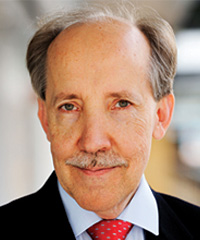 Kari K. Alitalo
Emeritus
Kari K. Alitalo
Emeritus
Dr. Kari Alitalo is a tenured Research Professor of the Finnish Academy of Sciences and Scientific Director of the Molecular/Cancer Biology Program and Centre of Excellence in the Biomedicum Helsinki research institute of the University of Helsinki. He obtained his M.D. and Ph.D. from the University of Helsinki in Finland.
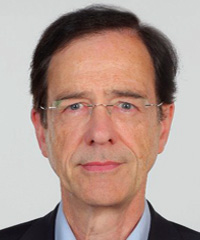 Michael Detmar
Michael Detmar
Professor Michael Detmar has been Full Professor of Pharmacogenomics in the Institute of Pharmaceutical Sciences at ETH Zurich since September 2004. He studied medicine in Freiburg and Vienna and obtained a M.D. degree in 1984 from the University of Freiburg. From 1993 to 1997, he was appointed visiting professor of pathology and dermatology at Harvard Medical School in Boston, MA, USA. Since 1998, he holds an appointment as associate professor at Harvard Medical School, and he also served as an associate director of research at the Department of Dermatology, Massachusetts General Hospital. His research program focuses on cancer biology, in particular the role of angiogenesis and lymphangiogenesis towards tumor metastasis, as well as on the molecular control of chronic inflammation. A major focus of the group is the genetic disposition for disease and for the response to specific therapies, with the aim to develop new individualized therapies for human diseases.
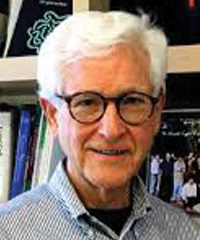 Donald McDonald
Emeritus
Donald McDonald
Emeritus
Professor Donald M. McDonald is a Member of the Comprehensive Cancer Center, Senior Staff Member of the Cardiovascular Research Institute, and Professor of Anatomy at the University of California, San Francisco, where he has been on the faculty since 1973. His research focuses on cellular mechanisms of angiogenesis, lymphangiogenesis, vascular remodeling, and plasma leakage, with the goal of using blood vessels and lymphatics as targets for treatments of cancer and chronic inflammatory disease and of understanding how inhibitors of angiogenesis and lymphangiogenesis can reduce tumor growth and metastasis and prolong life of patients with cancer.
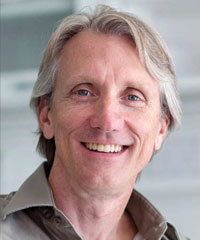 James Moore
James Moore
Prof. Moore received his Ph.D. from the Georgia Institute of Technology, followed by postdoctoral training at the Swiss Institute of Technology at Lausanne. He joined Imperial College in 2013 as the Bagrit and Royal Academy of Engineering Chair in Medical Device Design in the Department of Bioengineering. Prof. Moore’s research interests include Cardiovascular Biomechanics, Medical Devices, and the Lymphatic System. His research focuses on the role of biomechanics in the formation and treatment of diseases such as atherosclerosis and cancer. His research on lymphatic system biomechanics includes the pumping characteristics of the system, as well as the transport of nitric oxide, antigens, and chemokines in lymphatic tissues. Along with his funding from government, charity, and industry sources, Prof. Moore has received multiple patents for medical devices and testing equipment. Prof. Moore has also co-founded two startup companies.
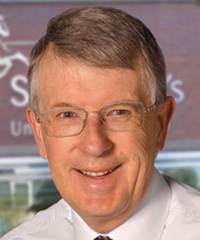 Peter Mortimer
Peter Mortimer
Professor Mortimer is Professor of Dermatological Medicine to St George’s Hospital and the University of London. He has developed the emerging area of Lymphovascular Medicine and has over 280 publications cited on PubMed. His group has been instrumental in discovering causal genes for primary lymphoedema and his current £2.5 million Medical Research Council programme grant investigates known genotypes of primary lymphoedema to better understand mechanisms of pathophysiology.
He sits on the medical advisory committee for the Lymphatic Education & Research Network (USA) and chairs their global oversight committee for the establishment of Centres of Excellence. He is founder of, and Chief Medical Officer to, the Lymphoedema Support Network, the UK patients' national charity. He is founder and Patron of the national body for health care professionals, the British Lymphology Society.
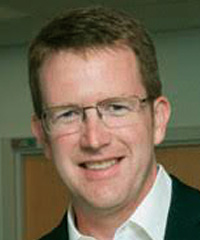 Timothy Padera
Timothy Padera
Dr. Padera is Associate Professor of Radiation Oncology at Harvard Medical School, a Principal Investigator in the Edwin L. Steele Laboratories, Department of Radiation Oncology at Massachusetts General Hospital and a Member of the Harvard-MIT Health Sciences & Technology Faculty. Dr. Padera’s laboratory studies how lymphatic vessels grow, mature and function, with a particular emphasis on how these processes are affected by disease conditions, such as lymphedema. In addition, the Padera Lab studies how cancer uses the lymphatic system to drive disease progression. Dr. Padera earned dual Bachelor’s Degrees in Chemical Engineering and Biomedical Engineering from Northwestern University. He earned his PhD in Medical Engineering from the Harvard-MIT Health Sciences and Technology program.
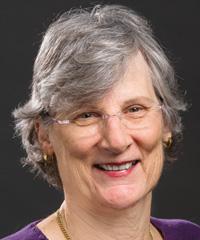 Nancy Ruddle
Emeritus
Nancy Ruddle
Emeritus
Nancy H. Ruddle, Ph.D., is professor emerita and senior research associate in the Division of Epidemiology of Microbial Diseases in the School of Public Health. Dr. Ruddle’s research, which began during her years as a graduate student in microbiology at Yale, focuses on lymphotoxin and other cytokines involved in autoimmune diseases and lymphoid organ development.
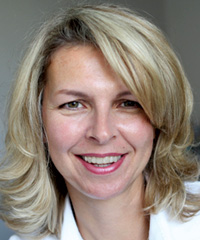 Mihaela Skobe
Mihaela Skobe
Mihaela Skobe, PhD, is an Associate Professor of Oncological Sciences at Mount Sinai Hospital in New York City. Her laboratory's main research interest is in understanding the mechanisms of cancer metastasis via the lymphatic system and the function of lymphatic vessels in the regulation of immune response.
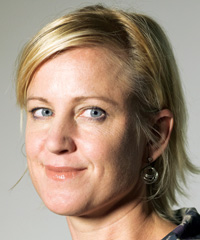 Melody Swartz
Melody Swartz
Melody Swartz is Professor of Bioengineering at the Swiss Federal Institute of Technology in Lausanne, Swizerland (EPFL). She holds joint appointments in the Institutes for Cancer Research and Chemical Engineering. She and her research group aim to elucidate the functional biology of the lymphatic system and its roles in cancer and immunity by integrating the approaches of bioengineering, physiology, and cell biology. They are also developing therapeutic strategies to manipulate lymphatic function. Swartz received her PhD in Chemical Engineering from MIT in 1998 and her BS in Chemical Engineering from Johns Hopkins in 1991. Following postdoctoral research at Harvard, she started her own lab at Northwestern University in 1999 and moved to the EPFL in 2003.
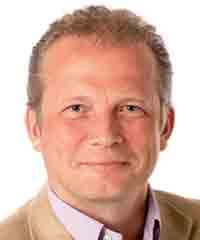 Miikka Vikkula
Miikka Vikkula
Professor Vikkula obtained his M.D. at the University of Helsinki and his Ph.D. in molecular genetics, with a thesis on collagens and cartilage disorders. He was a Research Associate at the Department of Cell Biology at Harvard Medical School. With his wife, Prof Laurence Boon, MD PhD, Plastic Surgeon, the couple discovered the gene for familial venous malformation in 1996. He obtained a "docentship Ph.D." in human molecular genetics at the Université catholique de Louvain in 2000, and was thereafter nominated Assistant Professor at the Faculty of Medicine in UCL. He has been a Full Member of the de Duve Institute and a member of the Directorat since 2004. He was nominated Professor of Human Genetics at the Université catholique de Louvain on 1/10/2008. Prof Vikkula is well known internationally as a major contributor to the understanding of molecular basis of lymphatic and vascular anomalies and lymphedema with many high impact publications.
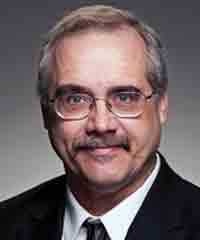 David Zawieja, Emeritus
Emeritus
David Zawieja, Emeritus
Emeritus
Dr. Zawieja received his Ph.D. in Physiology from the Medical College of Wisconsin, and conducted his post-doctorate work in Medical Physiology at Texas A&M University, where he is currently a Professor in the Department of Medical Physiology. The focus of his research is the generation and regulation of lymph flow, investigating the mechanisms by which physical and humoral factors alter lymph pumping.
Leadership
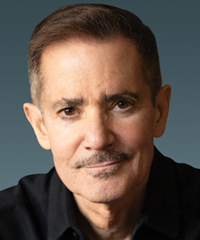 William Repicci
President and CEO
William Repicci
President and CEO
William Repicci has over 25 years of experience leading nonprofit organizations and businesses. Leadership positions have included being director of humanitarian programs in Northern Kenya, managing director of the National Theatre of the Deaf, CEO of the Fairbanks Resource Agency serving persons with developmental disabilities in Alaska, executive director of the Pasos Peace Museum in NYC and CEO of a dramatic publishing company. In 2013, he was awarded the ANCOR Legacy Leadership Award for his career accomplishments in advocacy efforts. Under his own management company, he has produced or managed over 35 plays and musicals in NYC, London and on tour. He has graduate degrees in Global Affairs (NYU); Behavioral Psychology (University of Wisconsin-Madison); Administration (Seattle University); Psychology (Catholic University of America); and a BA in Philosophy (Le Moyne College).


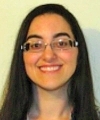





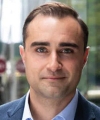
LE&RN Ambassadors
